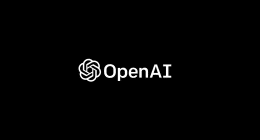The surprising outcome of the U.S presidential elections sparked debate around the spread of fake news across the interwebs. Facebook and Google came under fire for propagating such misleading pieces of information in their news feeds. Thus, the French government now wants to make sure their presidential elections aren’t affected by similar actions.
Thus, both Google and Facebook are stepping up their efforts to combat the spread of false stories surrounding the democratic atmosphere of the nation. The tech behemoths are planning to play host to French news publications through a collaborative news verification platform called CrossCheck. This initiative has been launched by Google’s News Lab Arm and First Draft News. It will become functional on February 27 in France, ahead of the presidential elections in April.
The said initiative is being undertaken with the aim of helping people better understand “what and who to trust in their social media feeds, web searches and general online news consumption.” It will bring together a collection of media and technology experts to a platform where hoaxes, rumors, and false claims are accurately reported to the public. CrossCheck will, however, not be restricted to such experts and the public will be provoked to provide their inputs as well.
Shedding light on the functionality of the platform, the blog post says,
The public will be encouraged to participate by submitting questions and links to disputed sites and social content for CrossCheck to investigate. These questions will all be listed and answered on a dedicated CrossCheck website.
The CrossCheck initiative has been under development since September 2016. For the first phase, Google News Lab and First Draft (which counts the former as its founding partner) have consulted local and national newsrooms in France to design the news reporting process of the platform. If a news story is reported the public, it goes into the system for verification by partner newsrooms. If the story is termed as unauthentic, then a warning label will be slapped to the same and other relevant articles will be displayed. Further, the blog post continues to add,
With the French presidential election as its primary focus, journalists from organizations across France will work together to find and verify content circulating publicly online, whether it is photographs, videos, memes, comment threads or news sites.
The official blog post adds that seventeen media partners have already joined the project. These early partners include AFP (Agence France-Presse), BuzzFeed News, France Médias Monde (via les Observateurs de France 24), France Télévisions, Global Voices, Libération, La Provence, Les Echos, La Voix du Nord, Le Monde, Nice-Matin, Ouest-France, Rue89 Bordeaux, Rue89Lyon, Rue89 Strasbourg, Storyful and StreetPress.
To help protect users from interacting with and spreading fake stories, the partners will contribute their experience, resources, and regional knowledge for a speedier and simpler verification process. This project will enable global newsrooms to ultimately better their own articles, programs and social media output. It will also benefit from collected learnings and experience gained from Electionland, a joint initiative to surface and report evidence of voter suppression around the US election in November 2016.
Further, Facebook is participating in the initiative since it has become a primary source of media consumption in the current scenario. The social media giant has itself termed itself as not a traditional technology and is now taking some responsibility for the content being posted on their platform.
The social media company will help newsrooms participating in the CrossCheck project by providing partners access to its recently acquired tool called ‘CrowdTangle.’ This will enable the public as well as newsrooms to easily discover content and monitor social impact/relevance of the same. Talking about the participation of Facebook, the official blog post says,
Facebook will also support CrossCheck through dedicated tools and media literacy efforts that will help to explain the verification process and keep relevant audiences up to date with confirmed and disputed information relating to the election.






